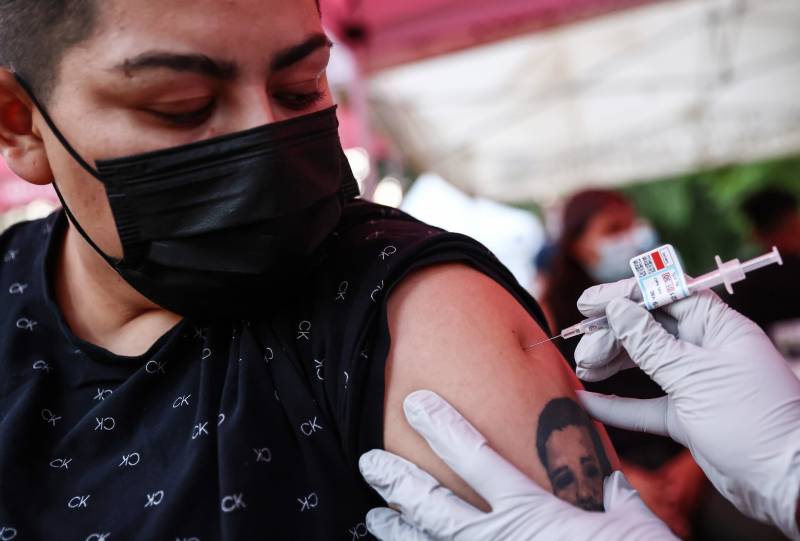While Johnson & Johnson’s vaccine is effective at preventing serious infections, “We have gotten a few requests based on patients talking to their physicians, and that’s why we are allowing the accommodations,” Dr. Naveena Bobba, the department’s deputy director, said at a Tuesday afternoon press briefing.
Bobba insisted the city was not deviating from the Centers for Disease Control and Prevention guidance, which stops short of recommending a supplemental shot.
On Thursday, however, SF General confirmed it had begun offering the supplemental shot at its drop-in clinic to anyone who previously received the J&J vaccine, without requiring a doctor’s note — a move that seemingly contradicts what public health officials said the day before.
The city’s decision comes amid an alarming nationwide spike in new infections stemming from the highly transmissible delta variant, which has sparked a sharp uptick in hospitalizations, almost exclusively among unvaccinated people.
California health officials on Tuesday reported more than 7,300 new cases of the coronavirus and said that 6.7% of tests were positive over a seven-day period, a steep increase from just a few weeks ago although a lower count than during the fall and winter surges.
Confusion has swirled around the various vaccines and whether they are effective against the delta variant.
In clinical trials in the United States, the single-shot J&J vaccine has been shown to be 72% effective in preventing moderate to severe illness from COVID-19. That’s compared to the two-shot Pfizer and Moderna vaccines, which are considered to be roughly 95% effective.
Early preprint research conducted using blood samples in labs also suggests the J&J vaccine could be less effective against the delta variant — but researchers caution that the analysis is preliminary and more studies are needed.
In July, J&J said its vaccine provided at least eight months of immunity from COVID-19 and “generated strong, persistent activity” against the delta variant.
Even so, Desi Kotis, associate dean at UCSF’s School of Pharmacy, said the city’s new policy seemed at odds with most current official health guidelines.
Neither the California Department of Public Health, the CDC nor the WHO has endorsed administering additional shots to people considered fully vaccinated, including those who have received the J&J vaccine, she noted.
“It’s not backed by anybody else, any other counties, so I would wait for now,” Kotis said.
The WHO has repeatedly called for richer countries to do more to help improve access to vaccines in poorer countries. It argues that no one is safe from COVID-19 until everyone is immunized, because the longer and more widely the virus circulates, the greater the chance of new variants emerging.
“Even while hundreds of millions of people are still waiting for their first dose, some rich countries are moving towards booster doses,” Tedros said Wednesday. He noted that more than 80% of vaccines have been administered in higher and upper-middle income countries, even though they account for less than half of the world’s population.
The U.N. health agency has no power to require countries to act, and many nations during the pandemic have ignored its appeals to donate more vaccines and boost production in developing countries.
“I understand the concern of all governments to protect their people from the delta variant,” Tedros said. “But we cannot and we should not accept countries that have already used most of the global supply of vaccines using even more of it, while the world’s most vulnerable people remain unprotected.”

